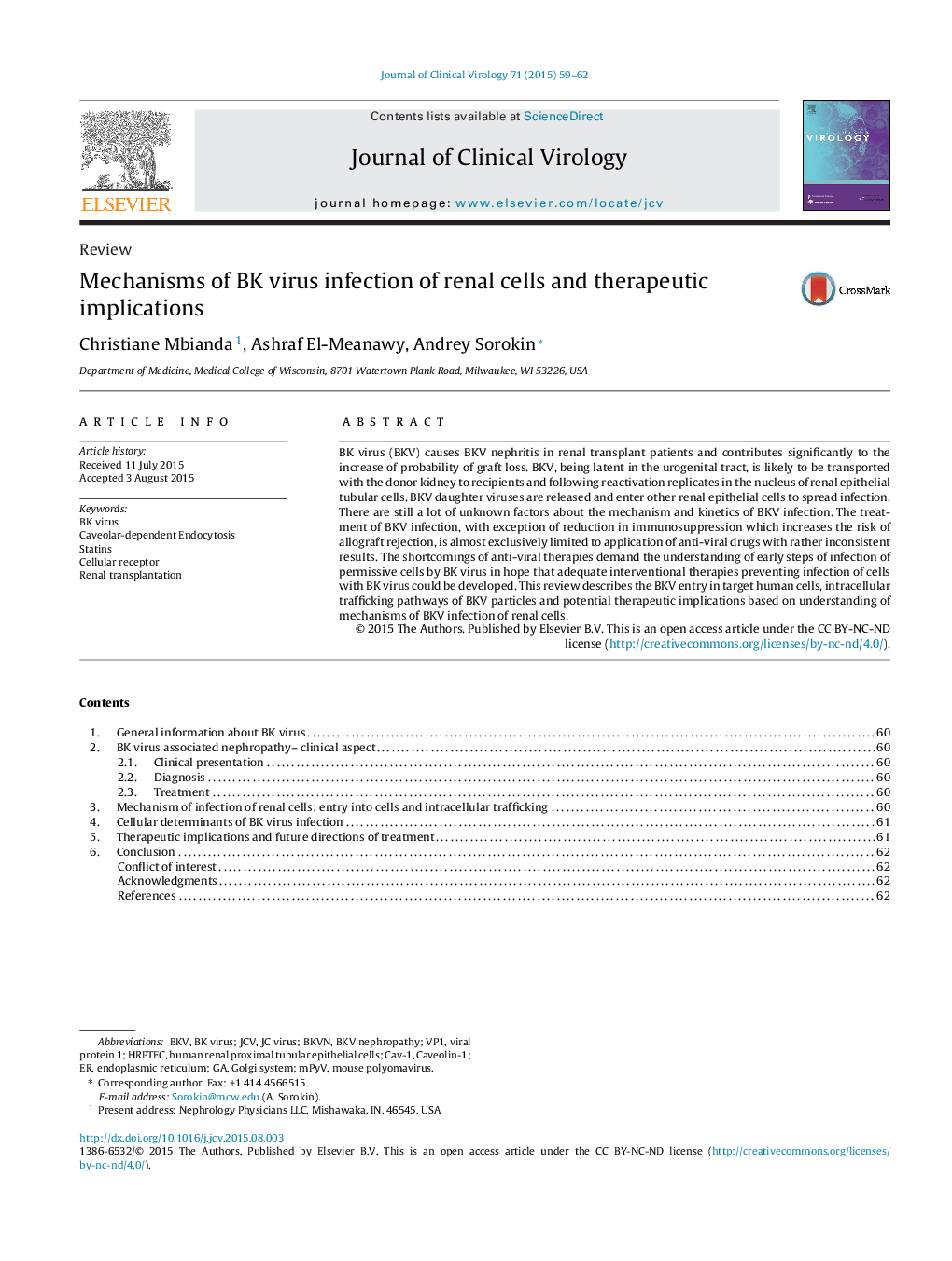| Article ID | Journal | Published Year | Pages | File Type |
|---|---|---|---|---|
| 6119714 | Journal of Clinical Virology | 2015 | 4 Pages |
Abstract
BK virus (BKV) causes BKV nephritis in renal transplant patients and contributes significantly to the increase of probability of graft loss. BKV, being latent in the urogenital tract, is likely to be transported with the donor kidney to recipients and following reactivation replicates in the nucleus of renal epithelial tubular cells. BKV daughter viruses are released and enter other renal epithelial cells to spread infection. There are still a lot of unknown factors about the mechanism and kinetics of BKV infection. The treatment of BKV infection, with exception of reduction in immunosuppression which increases the risk of allograft rejection, is almost exclusively limited to application of anti-viral drugs with rather inconsistent results. The shortcomings of anti-viral therapies demand the understanding of early steps of infection of permissive cells by BK virus in hope that adequate interventional therapies preventing infection of cells with BK virus could be developed. This review describes the BKV entry in target human cells, intracellular trafficking pathways of BKV particles and potential therapeutic implications based on understanding of mechanisms of BKV infection of renal cells.
Keywords
Related Topics
Life Sciences
Immunology and Microbiology
Applied Microbiology and Biotechnology
Authors
Christiane Mbianda, Ashraf El-Meanawy, Andrey Sorokin,
